- Home
- Diana Wynne Jones
The Game Page 2
The Game Read online
Page 2
Grandpa was kind, although he never seemed to have much idea what was suitable for small girls. Hayley had several frustrated memories about this. Before she could read, Grandpa had given her a book full of grey drawings of prisons, thinking she would enjoy looking at it. Hayley had not enjoyed it at all. Nor, when she had only just learned to read, had she enjoyed the book called The Back of the North Wind which Grandpa had pushed into her hands. The print in it was close and tiny, and Hayley could not understand the story.
But Grandpa had given her many other books later that she did enjoy. And he often – and quite unpredictably – showed Hayley peculiar things on one or other of his computers. The first time he did this, Hayley was decidedly disappointed. She had been expecting another cartoon, and here Grandpa was, showing her a picture of a large rotating football. Light fell on it sideways as it spun and also fell on the golf ball that was whizzing energetically round the football, going from round to half-lighted to invisible as it whizzed.
“This isn’t Tom and Jerry,” Hayley said.
“No, it’s the earth and the moon,” Grandpa said. “It’s time you learnt what makes day and night.”
“But I know that,” Hayley objected. “Day is when the sun comes up.”
“And I suppose you think the sun goes round the earth?” Grandpa said.
Hayley thought about this. She knew from the globe in the map room that the earth was probably round – though she thought people might well be wrong about that – so it stood to reason that the sun had to circle round it or people in Australia would have night all the time. “Yes,” she said.
She was hugely indignant when Grandpa explained that the earth went round the sun, and rather inclined to think Grandpa had got it wrong. Even when Grandpa zoomed the football into the distance and showed her the sun, like a burning beach ball, and the earth circling it along with some peas and several tennis balls, Hayley was by no means convinced. When he told her that it was the earth spinning that made day and night, and the earth circling the sun that made winter and summer, Hayley still thought he might be wrong. Because it was just pictures on a screen, she suspected they were no more real than Donald Duck or Tom and Jerry. And when Grandpa told her that the peas and tennis balls were other planets – Mercury, Venus, Mars, Jupiter, Saturn, Neptune, Pluto – like Earth, and that the tiny things shooting around them in orbits the shape of safety pins were comets, Hayley felt indignant and jealous for Earth, for not being the only one. It took her months to accept that this was the way things were.
She only really accepted it when Grandpa began showing her other things. He showed her the slow growth of Earth from a bare ball of rock, through agelong changes of climate, during which the lands moved about on its surface like leaves floating on a pond, and rocks grew and turned to sand. He showed her dinosaurs and tiny creatures in the sea bed. Then he showed her atoms, molecules and germs – after which Hayley for a long time confused all three with planets going round the sun and, when Grandma insisted that you washed to get rid of germs, wondered if Grandma was trying to clean the universe off her.
Grandpa showed her the universe too, where the Milky Way was like a silver scarf of stars, and other stars floated in shapes that were supposed to be people, swans, animals, crosses and crowns. He also showed Hayley the table of elements, which seemed to her to be something small but heavy, fixed into the midst of all the other floating, spinning, shining strangeness. She thought the elements were probably little number-shaped tintacks that pegged the rest in place.
Grandma had a tendency to object to Grandpa showing Hayley such things. Grandma was liable to march in when Hayley was peacefully settled in front of a cartoon or a plan of the universe and snap the off-button, saying it was not suitable for Hayley to watch. She always went through the books Grandpa gave Hayley too, and took away things like Fanny Hill and The Rainbow and Where the Rainbow Ends and Pilgrim’s Progress. Hayley never understood quite why these were unsuitable. But the time when Grandma came close to banning all computer displays was when Grandpa showed Hayley the mythosphere.
This was an accident really. It was raining, so that Hayley could not go out for her usual afternoon walk on the common. Grandma went to have her rest. Grandpa had just come home that morning from one of his mysterious absences. Grandpa usually vanished two or three times a year. When Hayley asked where he was, Grandma looked forbidding and answered, “He’s gone to visit his other family. Don’t be nosy.” Grandpa never talked about this at all. When Hayley asked where he had been, he pretended not to hear. But she was always truly glad when he came back. The house felt very dreary without the background hum of the computers and the constant ringing or beeping of all the phones. So, as soon as Grandma’s bedroom door shut, Hayley raced softly downstairs to the computer room.
Grandpa was there, sitting massively in front of a screen, carefully following something on it with a light-pen. Hayley tiptoed up to look over his shoulder. It was a picture of Earth, slowly spinning in dark blue emptiness. She saw Africa rotating past as she arrived. But Africa was quite hard to see because it and the whole globe was swathed in a soft, multicoloured mist. The mist seemed to be made up of thousands of tiny pale threads, all of them moving and swirling outwards. Each thread shone as it moved, gentle and pearly, so the effect was as if Earth spun in a luminous rainbow veil. While Hayley watched, some of the threads wrapped themselves together into a shining skein and this grew on outwards, growing brighter and harder-looking as it grew, and then got thrown gently sideways with the turning of the world, so that it became a silver red spiral. There were dozens of these skeins, when Hayley looked closely, in dozens of silvery colours. But underneath these were thousands of other shining threads which busily drifted and wove and plaited close to Earth.
“That’s beautiful!” Hayley said. “What are they?”
“Are your hands clean?” Grandpa answered absently. His light-pen steadily picked out a gold gleaming set of threads underneath the spirals and followed it in and out, here and there, through the gauzy mass. He seemed to take it for granted that Hayley had washed her hands because he went on, “This is the mythosphere. It’s made up of all the stories, theories and beliefs, legends, myths and hopes, that are generated here on Earth. As you can see, it’s constantly growing and moving as people invent new tales to tell or find new things to believe. The older strands move out to become these spirals, where things tend to become quite crude and dangerous. They’ve hardened off, you see.”
“Are they real, the same as atoms and planets?” Hayley asked.
“Quite as real – even realler in some ways,” Grandpa replied.
Hayley said the name of it to herself, in order not to forget it. “The mythosphere. And what are you doing with it?”
“Tracing the golden apples,” Grandpa said. “Wondering why they’ve never become a spiral of their own. They mix into other strands all the time. Look.” He did something to the keyboard to make Earth turn about and spread itself into a flat plain with continents slowly twirling across it. Golden threads rose from India, from the flatness north of the mountains, from the Mediterranean and from Sweden, Norway and Britain. “See here.” Grandpa’s big hairy hand pointed the light-pen this way and that as the threads arose. “This thread mingles with three different dragon stories. And this…” the line of light moved southward “…mixes with two quite different stories here. This one’s the judgement of Paris and here we have Atalanta, the girl who was distracted from winning a race by some golden apples. And there are hundreds of folk tales…” The pen moved northwards to golden threads growing like grass over Europe and Asia. Grandpa shook his head. “Golden apples all over. They cause death and eternal life and danger and choices. They must be important. But none of them combine. None of them spiral and harden. I don’t know why.”
“If they’re real,” Hayley said, “can a person go and walk in them, or are they like germs and atoms and too small to see?”
“Oh, yes,” Grandpa said
, frowning at the threads. “Only I don’t advocate walking in the spirals. Everything gets pretty fierce out there.”
“But nearer in. Do you walk or float?” Hayley wanted to know.
“You could take a boat if you want,” Grandpa said, “or even a car sometimes. But I prefer to walk myself. It’s—”
But here Grandma came storming in and seized Hayley by one arm. “Really! Honest to goodness, Tas!” she said, dragging Hayley away from the screen. “You ought to know better than to let Hayley in among this stuff!”
“It’s not doing her any harm!” Grandpa protested.
“On the contrary. It could do immense harm – to us and Hayley too, if Jolyon gets to hear of it!” Grandma retorted. She dragged Hayley out of the room and shut the door with a bang. “Hayley, you are not to have anything to do with the mythosphere ever again!” she said. “Forget you ever saw it!”
Chapter Three
Being ordered to forget about the mythosphere was like being ordered not to think of a blue elephant. Hayley could not forget those beautiful swirling, drifting, shining threads. She thought about the mythosphere constantly, almost as often as she stood on a chair and stared at the young, happy faces in her parents’ wedding photo. It was if the mythosphere had cast a spell on her. Something tugged at her chest whenever she remembered it and she felt a great sad longing that was almost like feeling sick.
It was a few days later that she met the musicians properly for the first time. Hayley was never sure whether or not the mythosphere had anything to do with it. But it seemed likely that it did.
She knew one of the musicians by sight anyway. She saw him every time the latest maid took her round by the shops instead of out on the common. Martya, the newest maid, always nodded and smiled at him. Martya was a big strong girl with hair like the white silk fringes on Grandma’s parlour furniture – soft, straight hair that was always swirling across her round pink face. Unfortunately, Martya’s face did not live up to her beautiful hair in any way. Grandma sniffed and called Martya “distressingly plain”, and then sighed and wished Martya spoke better English. When she sent Martya and Hayley round by the shops, Grandma always had to give Martya a list written in big capital letters because Martya didn’t read English very well either. This, Grandma explained to Hayley, was because Martya was from Darkest Russia, where they used different letters as well as different language. It was Martya’s bad English that first caused Hayley’s interest in the musician.
He was very tall and skinny and he always wore a dark suit with a blue scarf tucked in around the neck. He had stood for as long as Hayley could remember, rain or shine, in the exact same place outside the pub called The Star, playing high sweet notes on a shabby little violin that looked much too small for him. The case of the violin lay open on the pavement by his feet and people occasionally chucked coppers or 5p’s into it as they passed. Hayley always wondered why he never seemed to play any real tunes – just music, she thought of it.
Neither Hayley nor Martya ever had any coins to drop into the case, but Martya never failed to nod and smile at the man; whereupon he nodded back, violin and all, still playing away, and a large beaming smile would spread up his thin face, making his eyes gleam the same bright blue as his scarf. Up till then Hayley had always assumed he was old. But he had such a young smile that she now noticed that his hair, under the round black cap he always wore, was not old white, but the same sort of fine white hair as Martya’s.
“Is he some relation of yours?” she asked. “Is that why you nod?”
“No. Is polite,” Martya said. “He is musician.”
The way she said it, it sounded like “magician”. Hayley said, “Oh!” very impressed, and from then on she too nodded and smiled at the musician, with considerable awe. And he always smiled back.
Hayley longed to ask the musician about his magic powers, but Martya always hurried her past to the shops before she had a chance to ask.
Then one afternoon they were in the corner shop just beyond The Star – where Hayley could still hear the violin in the distance, so sad and sweet that she felt herself aching with the same longing she felt about the mythosphere – when Martya fell into an argument with Mr Ahmed who ran the shop. Both of them pointed to Grandma’s list and Mr Ahmed kept saying, “No, no, I assure you, this word is orangeade.” While Martya said, over and over, “Is oranges we need!”
Hayley waited for them to stop, idly kicking at the base of the ice-cream machine while she waited. And something tinkled beside her shoe. She looked down and saw it was a pound coin.
Without even having to think, she snatched it up and raced out of the shop, round the bulging steps of The Star, back to where the musician stood playing. There she dropped the coin into the violin case and waited breathlessly in front of him.
After a moment he seemed to realise that she wanted something. He took his bow off his violin and the violin down from his chin. “Thank you,” he said.
He had a nice, light kind of voice. Much encouraged by it, Hayley blurted out, “Please, I just wanted to know, are you a magician?”
He thought about it. “It depends what you mean by magician,” he said at length. “My ways are not your ways. But I have a brother who stands in the sun, who could tell you more.”
Hayley looked across the street, where the sunlight blazed on shoppers and glinted off shop windows. She had often vaguely wondered why the musician always stood here, on the shady side of the street. She turned back to ask if the brother was a musician as well.
But here Martya dashed up in a panic and seized Hayley’s arm. “You don’t go, you don’t go! Your baba kills me! So sorry,” she gasped at the musician. “She bother you.”
He smiled his blue-eyed smile. “Not at all,” he said.
Martya gave him a flustered glare and dragged Hayley back to the shop, where she and Mr Ahmed had settled the argument by getting Grandma both oranges and orangeade. Grandma was not pleased when they got home. She had wanted orange juice.
Thereafter, whenever they went to the shops, Hayley always tried to tempt Martya to walk on the sunny side of the street, in hopes of meeting the musician’s brother. Martya nodded and smiled as if she quite understood, and then stayed on the usual side of the road. Nodding and smiling turned out to be a habit with Martya. She used it instead of understanding English. She used it particularly when Grandma told her to clean the silver or sweep the stairs. Grandma soon began saying Martya was a lazy slattern.
“Now let us see,” Grandma said, one afternoon a few days later, “if you can manage to do one simple thing, Martya. No, don’t nod, don’t smile. Just look at Hayley’s shoes.” She pointed. Martya and Hayley both looked down at Hayley’s neat black shiny shoes. “Now go to the shoe shop,” Grandma said, “with this note and this money, and get Hayley another pair just the same but half a size larger. Can you do that?”
“I can do that, Grandma,” Hayley said joyfully. The shoe shop was on the sunny side of the street.
“I’m talking to Martya,” Grandma said. “Martya is doing the buying. I want the same kind exactly, Martya. No other colour, no fancy bits. Have you understood?”
Martya nodded and smiled vigorously and the pair of them set off towards the shops. On the way, Martya said, rather helplessly, “I don’t know how is shoes. What is fancy bits?”
“I’ll show you,” Hayley said.
The shoe shop was quite a long way down the road from The Star, where the musician was playing as usual. Hayley waved to him across the street, but she was not sure he saw her. When they reached the shoe shop, Hayley led Martya in front of the window and pointed to the various different shoes inside it. “Look – those pink ones with cowboy fringes have the fancy bits, and so do those with a flower on front. Do you see?”
While Martya pulled her hair aside in order to bend down and stare at the shoes, and then did her usual nodding and smiling, Hayley suddenly began hearing sweet distant snatches of music. It was not violin music. She was n
ot sure what instrument it was, but it flowed and stopped and flowed again, in some of the loveliest sounds she had ever heard. “It’s his brother,” she said to Martya. Martya just nodded and smiled and looked at shoes. Hayley said, “I’ll be back in a minute,” and walked sideways away along the fronts of the shops, tracking the music. “Like the Pied Piper or something,” she said aloud, as the sounds led her on, and on, and then round a corner into a small side street.
The musician was there, standing in blazing sunlight and, to Hayley’s delight, he was actually playing a pipe, the kind you held sideways out along one shoulder to play. Hayley dimly thought it might be a flute. She had never heard such lovely sounds as those that came pouring out of it, although she did wish that he would keep to one tune, instead of playing in snatches. One moment he would be playing something wild and jolly. Then he would break off and start another tune, this one melting and sad. Then it would be music you could march to. She stood and surveyed him and rejoiced.
He had hair like Martya’s, quite long, but not as long as Martya’s, that blew around his head in fine white strands, and he was as tall and thin as the violin-player, though nothing like so neat. His clothes were green and baggy, and a green, green scarf fluttered from his neck. A baggy green hat lay on the ground by his bare feet, waiting for money.
He was watching Hayley watching him while he played. His eyes were the same green as his scarf. Hayley had never seen eyes that colour before, nor had she ever looked into eyes that were so direct and interested and kind. It was as if he and Hayley knew one another already.

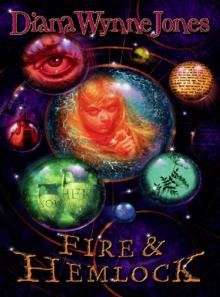 Fire and Hemlock
Fire and Hemlock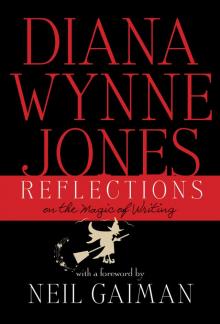 Reflections: On the Magic of Writing
Reflections: On the Magic of Writing The Game
The Game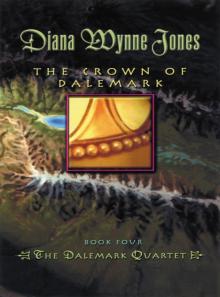 The Crown of Dalemark
The Crown of Dalemark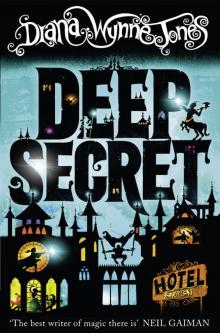 Deep Secret
Deep Secret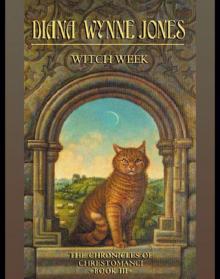 Witch Week
Witch Week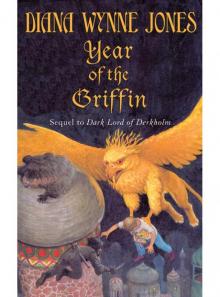 Year of the Griffin
Year of the Griffin Wild Robert
Wild Robert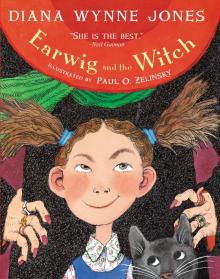 Earwig and the Witch
Earwig and the Witch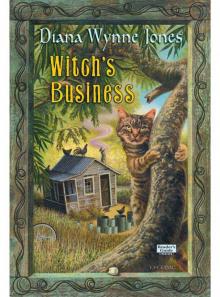 Witch's Business
Witch's Business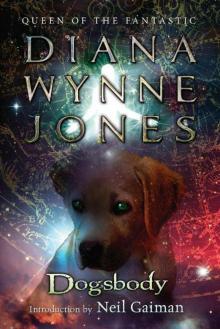 Dogsbody
Dogsbody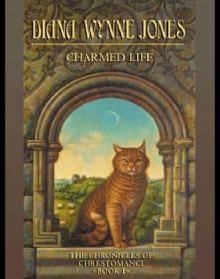 Caribbean Cruising
Caribbean Cruising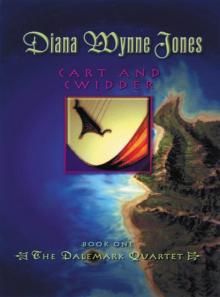 Cart and Cwidder
Cart and Cwidder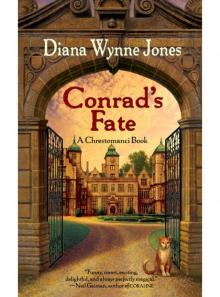 Conrad's Fate
Conrad's Fate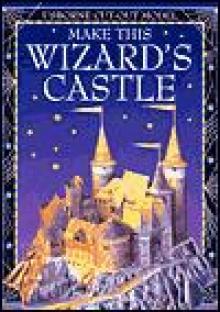 Howl's Moving Castle
Howl's Moving Castle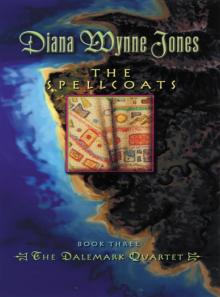 The Spellcoats
The Spellcoats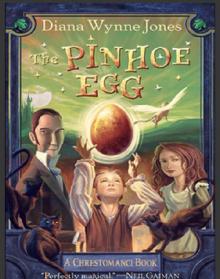 The Pinhoe Egg
The Pinhoe Egg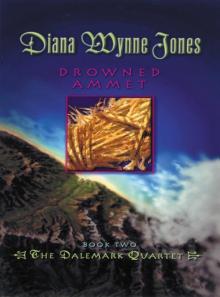 Drowned Ammet
Drowned Ammet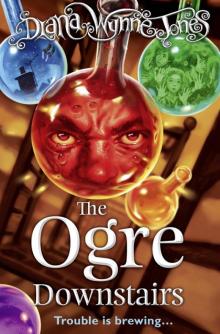 The Ogre Downstairs
The Ogre Downstairs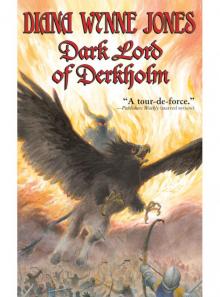 Dark Lord of Derkholm
Dark Lord of Derkholm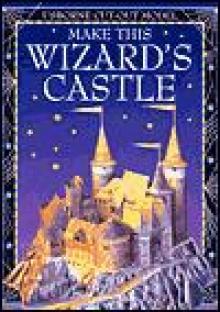 Castle in the Air
Castle in the Air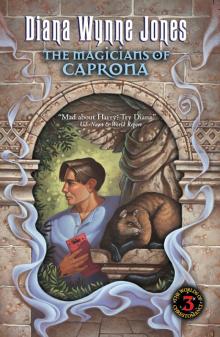 The Magicians of Caprona
The Magicians of Caprona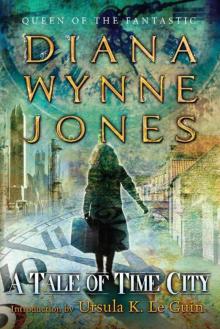 A Tale of Time City
A Tale of Time City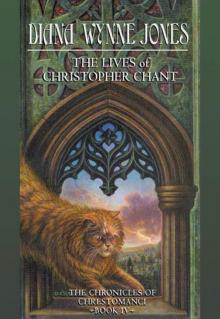 The Lives of Christopher Chant
The Lives of Christopher Chant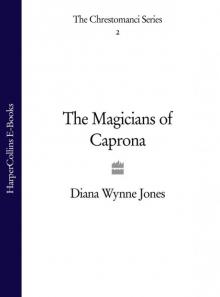 The Magicians of Caprona (UK)
The Magicians of Caprona (UK)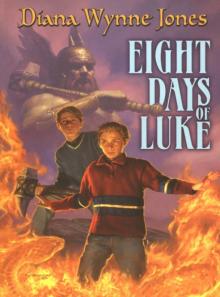 Eight Days of Luke
Eight Days of Luke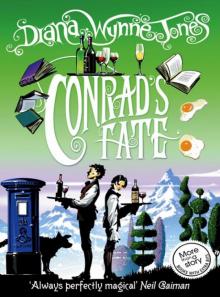 Conrad's Fate (UK)
Conrad's Fate (UK)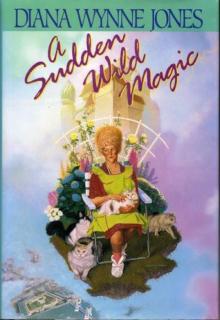 A Sudden Wild Magic
A Sudden Wild Magic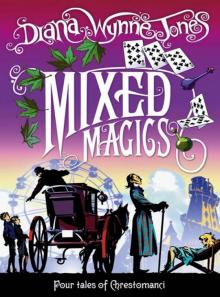 Mixed Magics (UK)
Mixed Magics (UK)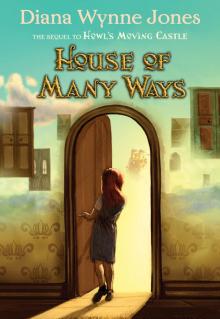 House of Many Ways
House of Many Ways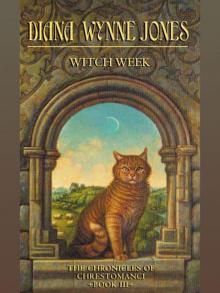 Witch Week (UK)
Witch Week (UK)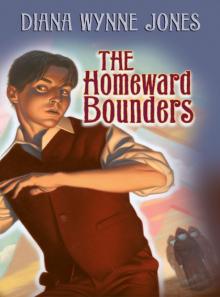 The Homeward Bounders
The Homeward Bounders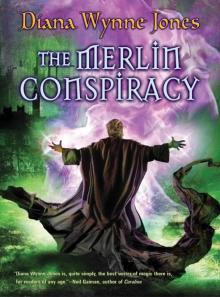 The Merlin Conspiracy
The Merlin Conspiracy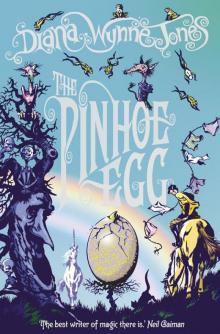 The Pinhoe Egg (UK)
The Pinhoe Egg (UK)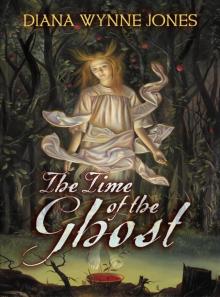 The Time of the Ghost
The Time of the Ghost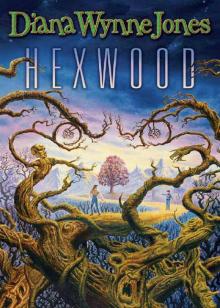 Hexwood
Hexwood Enchanted Glass
Enchanted Glass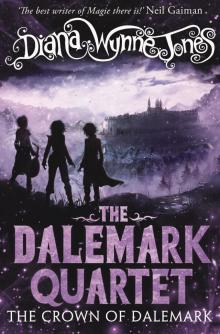 The Crown of Dalemark (UK)
The Crown of Dalemark (UK)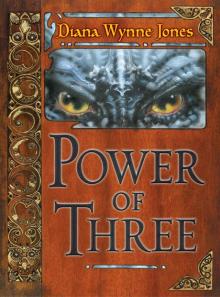 Power of Three
Power of Three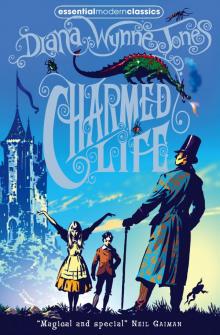 Charmed Life (UK)
Charmed Life (UK)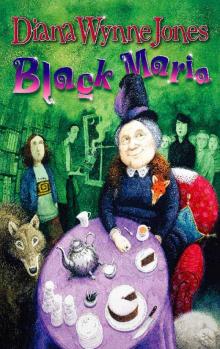 Black Maria
Black Maria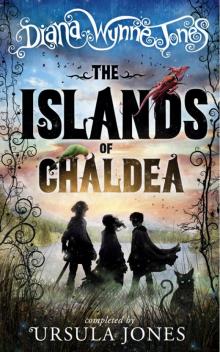 The Islands of Chaldea
The Islands of Chaldea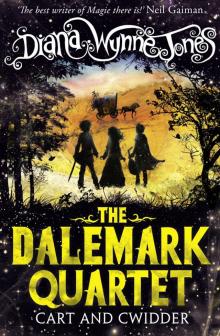 Cart and Cwidder (UK)
Cart and Cwidder (UK)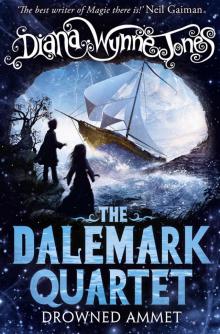 Drowned Ammet (UK)
Drowned Ammet (UK)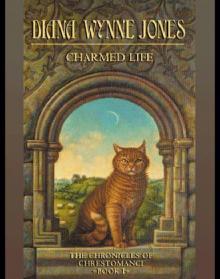 Charmed Life
Charmed Life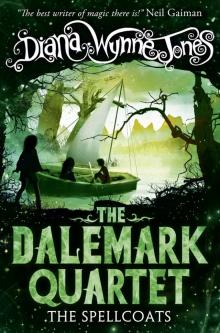 The Spellcoats (UK)
The Spellcoats (UK)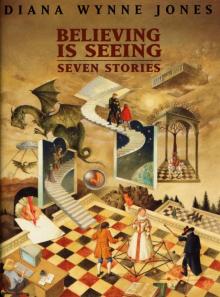 Believing Is Seeing
Believing Is Seeing Samantha's Diary
Samantha's Diary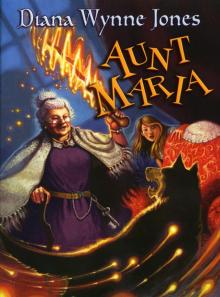 Aunt Maria
Aunt Maria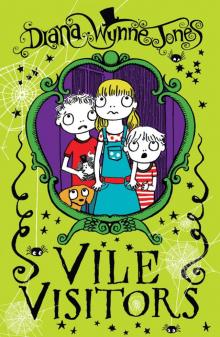 Vile Visitors
Vile Visitors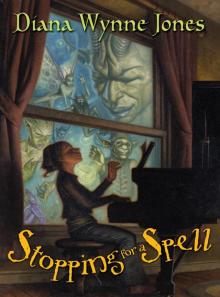 Stopping for a Spell
Stopping for a Spell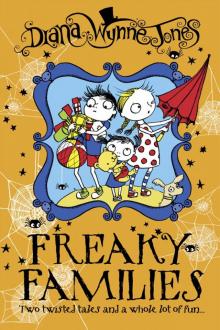 Freaky Families
Freaky Families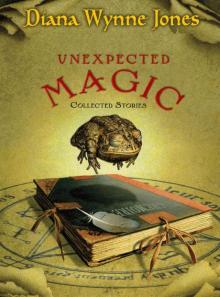 Unexpected Magic
Unexpected Magic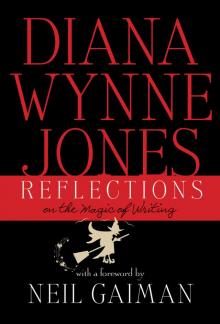 Reflections
Reflections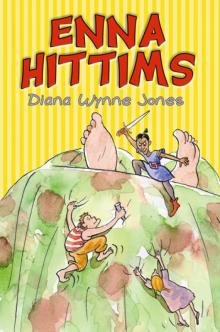 Enna Hittms
Enna Hittms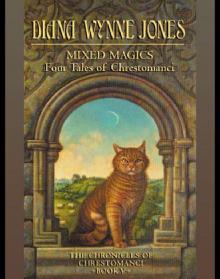 Mixed Magics: Four Tales of Chrestomanci
Mixed Magics: Four Tales of Chrestomanci